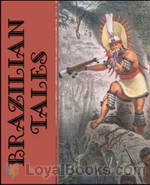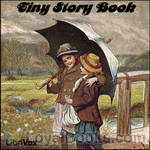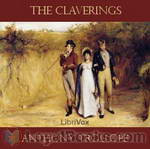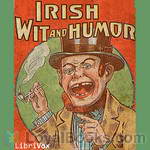|
Books Should Be Free Loyal Books Free Public Domain Audiobooks & eBook Downloads |
|
|
Books Should Be Free Loyal Books Free Public Domain Audiobooks & eBook Downloads |
|
Literature |
|---|
|
Book type:
Sort by:
View by:
|
By: Anonymous | |
|---|---|
 Eirik the Red's Saga
Eirik the Red's Saga
In this saga, the events that led to Eirik the Red’s banishment to Greenland are chronicled, as well as Leif Eirikson’s discovery of Vinland the Good (a place where wheat and grapes grew naturally), after his longboat was blown off-course. By geographical details, this place is surmised to be present-day Newfoundland, and is likely the first European discovery of the American mainland, some five centuries before Christopher Columbus’s journey. | |
By: Various | |
|---|---|
 Brazilian Tales
Brazilian Tales
“Brazilian Tales” is a collection of six short stories selected by Isaac Goldberg as best representative of the Brazilian Literature of his period – the end of the 19th century. His comprehensive preface aims at familiarizing the reader with a literature that was – and still is – virtually unknown outside the boundaries of its own land, and the pieces chosen by Goldberg to be translated belong to writers that reached popularity and appreciation while still alive. This “pioneer volume”, as the translator himself puts it, still keeps its charm and interest as a way of offering to the English speaking public some “sample cases” of Brazilian Literature. | |
By: Unknown | |
|---|---|
 James Joyce in Context: Telemachus
James Joyce in Context: Telemachus
Collection of various works which James Joyce quotes and references to in his epic novel Ulysses, and provides them in audio form. Perfect for Joyce scholars, fans, and aficionados! | |
By: Anonymous | |
|---|---|
 The Song of Roland
The Song of Roland
The Song of Roland is an epic poem, originally sung in Old French. It tells the story of the Battle of Roncevaux Pass in 778. This is an English translation. Translated by Charles Kenneth Scott-Moncrieff. | |
 Tiny Story Book
Tiny Story Book
Short and sweet stories for children. | |
 English as She is Wrote
English as She is Wrote
"...Showing Curious ways in which the English Language may be made to convey Ideas or obscure them." A collection of unintentionally humorous uses of the English language. Sections of the work: How she is wrote by the Inaccurate, By Advertisers and on Sign-boards, For Epitaphs, By Correspondents, By the Effusive, How she can be oddly wrote, and By the Untutored. | |
By: Various | |
|---|---|
 Library of the World's Best Literature, Ancient and Modern
Library of the World's Best Literature, Ancient and Modern
The Library of the World's Best Literature, Ancient and Modern, is a work of enormous proportions. Setting out with the simple goal of offering "American households a mass of good reading", the editors drew from literature of all times and all kinds what they considered the best pieces of human writing, and compiled an ambitious collection of 45 volumes (with a 46th being an index-guide). Besides the selection and translation of a huge number of poems, letters, short stories and sections of books, the collection offers, before each chapter, a short essay about the author or subject in question... | |
 My First Book
My First Book
This is not a children’s book, as may be supposed from the title, but a collection of essays first published in The Idler magazine, in which over twenty well-known writers describe with characteristic style and humour their experiences in producing their first book… and getting it published. The book is profusely illustrated, not only with portraits of the authors, but also with scenes and illustrations from the books discussed. Authors include Jerome K. Jerome, R. L. Stevenson, Bret Harte, Rider Haggard, Rudyard Kipling, Sir Arthur Conan Doyle and Mary Braddon... | |
By: Zane Grey (1872-1939) | |
|---|---|
 To The Last Man
To The Last Man
The story follows an ancient feud between two frontier families that is inflamed when one of the families takes up cattle rustling. The ranchers are led by Jean Isbel and, on the other side, Lee Jorth and his band of cattle rustlers. In the grip of a relentless code of loyalty to their own people, they fight the war of the Tonto Basin, desperately, doggedly, to the last man, neither side seeing the futility of it until it is too late. And in this volatile environment, young Jean finds himself hopelessly in love with a girl from whom he is separated by an impassable barrier. | |
By: Unknown | |
|---|---|
 The Mabinogion
The Mabinogion
Sample a moment of magic realism from the Red Book of Hergest: On one side of the river he saw a flock of white sheep, and on the other a flock of black sheep. And whenever one of the white sheep bleated, one of the black sheep would cross over, and become white; and when one of the black sheep bleated, one of the white sheep would cross over, and become black. Before passing on to the Mabinogion proper, Lady Charlotte Guest devotes Volume I of her compilation of medieval Welsh tales to three brief romances of Arthur’s Court... | |
By: Harry Harrison (1925-) | |
|---|---|
 The Misplaced Battleship
The Misplaced Battleship
"It might seem a little careless to lose track of something as big as a battleship ... but interstellar space is on a different scale of magnitude. But a misplaced battleship—in the wrong hands!—can be most dangerous." The world class con man and thief known as the Stainless Steel Rat (diGriz) has another very big problem to solve and this science fiction novella by the great Harry Harrison will see if he can solve it and perhaps four or five more like it before this fascinating and funny tale is finished. 'Use a thief to catch a thief' sounds great but it sometimes has unexpected results. | |
By: Unknown | |
|---|---|
 Lords of the Housetops: Thirteen Cat Tales
Lords of the Housetops: Thirteen Cat Tales
The Lords of the Housetops reveals the cat through the creative lenses of 13 authors. Consequently, this carefully chosen collection of stories is as complex, charismatic and clever as a cat. | |
By: Asa Don Dickinson (1876-1960) | |
|---|---|
 The Children's Book of Christmas Stories
The Children's Book of Christmas Stories
Many librarians have felt the need and expressed the desire for a select collection of children's Christmas stories in one volume. This book claims to be just that and nothing more. Each of the stories has already won the approval of thousands of children, and each is fraught with the true Christmas spirit. It is hoped that the collection will prove equally acceptable to parents, teachers, and librarians. | |
By: Unknown | |
|---|---|
 Oscar Wilde: Art and Morality. A Defence of The Picture of Dorian Gray
Oscar Wilde: Art and Morality. A Defence of The Picture of Dorian Gray
“Who can help laughing when an ordinary journalist seriously proposes to limit the subject-matter at the disposal of the artist?” “We are dominated by journalism…. Journalism governs for ever and ever.” One of the nastiest of the British tabloids was founded a year too late to join in the moral panic generated to accompany Oscar Wilde’s court appearances in 1895. Yet there was no shortage of hypocritical journalists posing as moral arbiters to the nation, then as now. This compendium... | |
By: Richard Harding Davis (1864-1916) | |
|---|---|
 The Amateur
The Amateur
On the steamer on his way to London, Austin Ford meets a young woman, who is going to London to find her missing husband. Being a specialist in finding people, Mr. Ford agrees to help her in her quest. However, something appears to be not quite right about the lady and her story... | |
By: Unknown | |
|---|---|
 The Lock and Key Library
The Lock and Key Library
A collection of classic mystery and detective stories, collected and edited by Julian Hawthorne. Note: the second chapter of Dickens’ The Haunted House is not included in this edition. | |
By: H. Beam Piper (1904-1964) | |
|---|---|
 A Slave is A Slave
A Slave is A Slave
The Galactic Empire is slowly 'welcoming' into the family of civilized worlds those systems so far off in the backwater of the galaxy that they have been overlooked and ignored for the past 500 years or so. This is purely routine work because every planet offered the chance has eagerly accepted the invitation. Mainly because the enlightened Empire lets the planetary government continue to rule and do whatever it wants...with a few minor restrictions of course; and because the they are shown what happens to planets who decide not to accept the invitation... | |
By: John R. Musick (1849-1901) | |
|---|---|
 The Witch of Salem
The Witch of Salem
A Historical Novel about the Salem Witch Trials. A fantastic illustrated historical novel by the prolific American author John R. Musick From the author’s preface: The "Witch of Salem" is designed to cover twenty years in the history of the United States, or from the year 1680 to 1700, including all the principal features of this period. Charles Stevens of Salem, with Cora Waters, the daughter of an indented slave, whose father was captured at the time of the overthrow of the Duke of Monmouth, are the principal characters... | |
By: George Alfred Henty (1832-1902) | |
|---|---|
 Beric the Briton - A Story of the Roman Invasion
Beric the Briton - A Story of the Roman Invasion
My series of stories dealing with the wars of England would be altogether incomplete did it not include the period when the Romans were the masters of the country. The valour with which the natives of this island defended themselves was acknowledged by the Roman historians, and it was only the superior discipline of the invaders that enabled them finally to triumph over the bravery and the superior physical strength of the Britons. The Roman conquest for the time was undoubtedly of immense advantage to the people -- who had previously wasted their energies in perpetual tribal wars -- as it introduced among them the civilization of Rome... | |
By: Harry Harrison (1925 -) | |
|---|---|
 The K-Factor
The K-Factor
The human race has reached the stars, colonized many planets and done amazing things in all areas of scientific progress. But humans are still humans and remain both honorable and not so honorable; some with high ideals and others with very low ones indeed. So why hasn't war occurred in several centuries among the hundreds of planets? Has man really changed? Not on your life it hasn't! Read how science has given man peace but at what cost? | |
By: Anonymous | |
|---|---|
 That Mother-in-Law of Mine
That Mother-in-Law of Mine
Here we were, only a month married, and spending our honeymoon at a most charming summer resort, where there was no excuse for getting out of patience. Everything was beautiful and attractive: Little hotel, strange to say, quite delightful; no fault to find with surroundings and accommodations; my darling Bessie, as sweet as an angel and determined to be happy and to make me happy; everything, in short, calculated to give us a long summer of delight. That is, if Bessie had only been an orphan. But there was her mother, who had joined us on our summer trip, after the first two weeks of unalloyed happiness, and threatened to accompany us through life. (excerpt from chapter 1) | |
By: Arthur Machen (1863-1947) | |
|---|---|
 The Great God Pan
The Great God Pan
"The Great God Pan" is a novella written by Arthur Machen. A version of the story was published in the magazine Whirlwind in 1890, and Machen revised and extended it for its book publication (together with another story, "The Inmost Light") in 1894. On publication it was widely denounced by the press as degenerate and horrific because of its decadent style and sexual content, although it has since garnered a reputation as a classic of horror. Machen’s story was only one of many at the time to focus on Pan as a useful symbol for the power of nature and paganism... | |
By: John Buchan (1875-1940) | |
|---|---|
 Huntingtower
Huntingtower
Dickson McCunn, a respectable, newly retired grocer, plans a walking holiday in the hills of south-west Scotland. He meets a young English poet and finds himself in the thick of a plot involving the kidnapping of a Russian princess, who is held prisoner in the rambling mansion, Huntingtower. This modern fairy-tale is also a gripping adventure story. | |
By: Unknown | |
|---|---|
 Humour of the North
Humour of the North
Some day an enterprising editor may find time to glean from the whole field of Canadian literature a representative collection of wit and humour. . . . The present little collection obviously makes no such ambitious claim. It embraces, however, what are believed to be representative examples of the work of some of our better-known writers, many of which will no doubt be quite familiar to Canadian readers, but perhaps none the less welcome on that account. | |
By: William Dean Howells, Mary E. Wilkins Freeman, Mary Heaton Vorse | |
|---|---|
 The Whole Family
The Whole Family
A 1908 NaNoWriMo forerunner, told in twelve chapters, each with a different author. The basic plot was to show how an engagement or marriage would affect and be affected by an entire family. The project became somewhat curious for the way the authors' contentious interrelationships mirrored the sometimes dysfunctional family they described in their chapters. The collaboration may have been an uncomfortable one, but a final product did emerge with some clever and entertaining contributions from its often squabbling authors. | |
By: Edgar Jepson (1863-1938) | |
|---|---|
 The Loudwater Mystery
The Loudwater Mystery
Lord Loudwater is found murdered in his house one evening. Unfortunately for Detective Flexen, who is to investigate the case, Lord Loudwater was not a very agreeable sort of fellow and almost every person in his vicinity had a motive for the crime. Was it his young wife or her lover, his former fiance or even one of the servants? | |
By: Emily Eden | |
|---|---|
 The Semi-Detached House
The Semi-Detached House
If you're a Jane Austen fan, you'll enjoy Emily Eden's comic novels of manners, The Semi-Detached House (1859) and The Semi-Attached Couple (1860). At the opening of The Semi-Detached House, the beautiful (but rather petulant) Lady Blanche Chester, newly married and pregnant, is being installed in a suburban house while her husband is away. Her encounters with her neighbors, and the intrigues of the neighborhood, soon come to absorb and annoy her. | |
By: William Shakespeare (1564-1616) | |
|---|---|
 Coriolanus
Coriolanus
Shakespeare was passionately interested in the history of Rome, as is evident from plays like Titus Andronicus, Julius Caesar, and Antony and Cleopatra. His tragedy Coriolanus was probably written around 1605-07, and dramatizes the rise and fall of a great Roman general, Caius Martius (later surnamed Coriolanus because of his military victory at Corioli). This play is unusual in that it provides a strong voice for the ordinary citizens of Rome, who begin the play rioting about the high price of food, and who continually clash with Coriolanus because of his contempt for plebians. | |
By: E.E. Smith (1890-1965) | |
|---|---|
 The Vortex Blaster
The Vortex Blaster
Uncontrolled, terribly violent Atomic Vortices are slowly destroying civilization on every human planet throughout the galaxy. Nothing can contain or stop them despite the lensmen's best efforts until one destroys the home and family of "Storm" Cloud, brilliant atomic physicist. The tragedy triggers actions on his part that pit him one-on-one against the horrible vortices. Introducing "storm" Cloud as THE Vortex Blaster | |
By: Zane Grey (1872-1939) | |
|---|---|
 The Heritage Of The Desert
The Heritage Of The Desert
Jack Hare is a young cowboy who was rescued from sure death by an old settler by the name of August Naab. Hare learns that Naab's ranch is a dangerous place and is challenged by cattle thieves and a corrupt rancher who is after Naab's water rights. The greatest danger Hare faces though, is over Mescal, a half-Navajo shepherdess who is already promised in marriage to Naab's first-born son. Hare must stop the marriage, but can't kill the son of his benefactor, August Naab...until a gun battle with rustlers brings the two face-to-face over drawn pistols. | |
By: Anthony Trollope (1815-1882) | |
|---|---|
 The Claverings
The Claverings
"I consider the story as a whole to he good, though I am not aware that the public ever corroborated that verdict." - the author The Claverings is the best wrought of the novels designed for The Cornhill, and as surely conceived as any book he ever wrote." - Sadleir. "It is a novel of atmosphere, and the atmosphere is of that sort very dangerous for the English novelist, the atmosphere captured so supremely well by Thackeray the green-lighted, close-scented gambling rooms, the shabby adventures of half-deserted spas, the shelving beaches of foreign watering-places, concealed accents, stolen passports, impoverished counts and impertinent ladies' maids... | |
By: Anonymous | |
|---|---|
 Irish Wit and Humor
Irish Wit and Humor
Excerpted anecdotes from the biographies of Swift, Curran, O'Leary and O'Connell, relating humorous snippets of politics in 18th and 19th century Ireland. For some these may be poignant in addition to being humorous and for others they may be humorous in addition to being poignant. ( | |